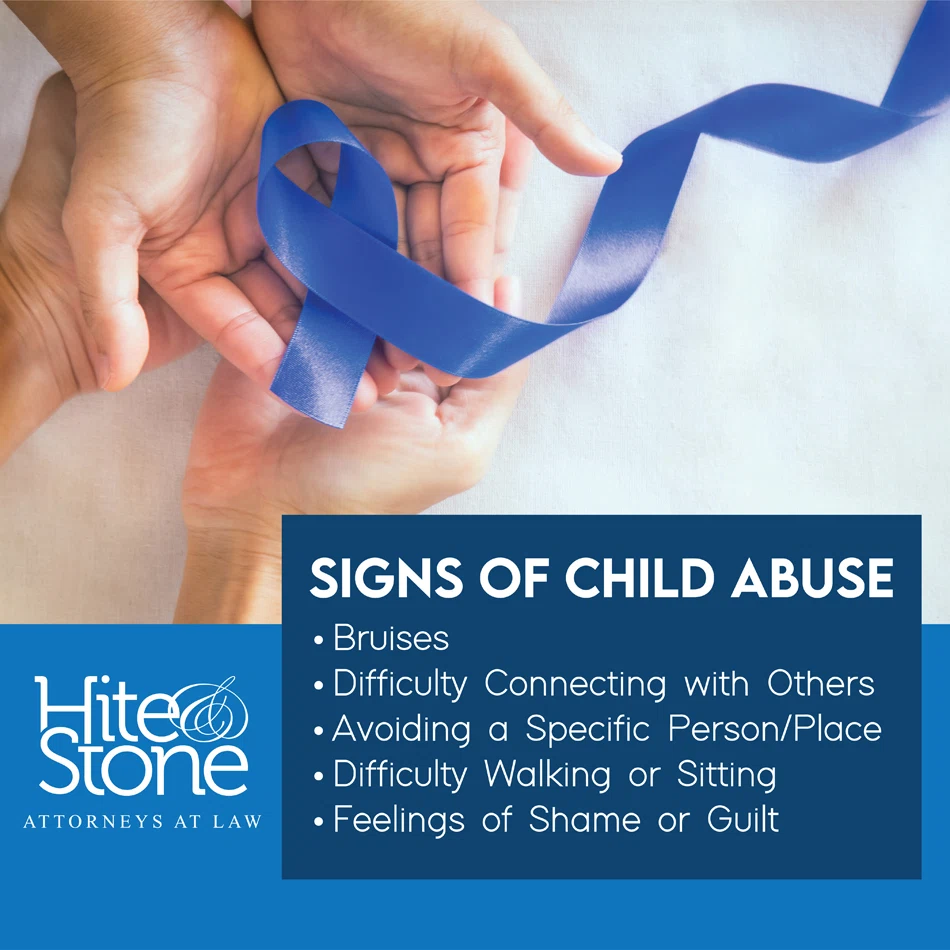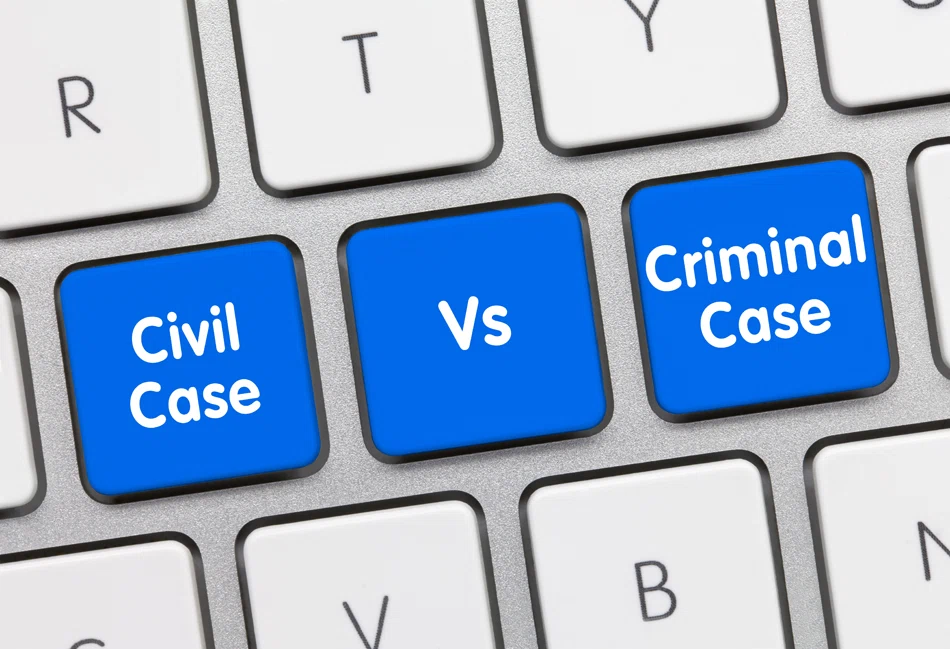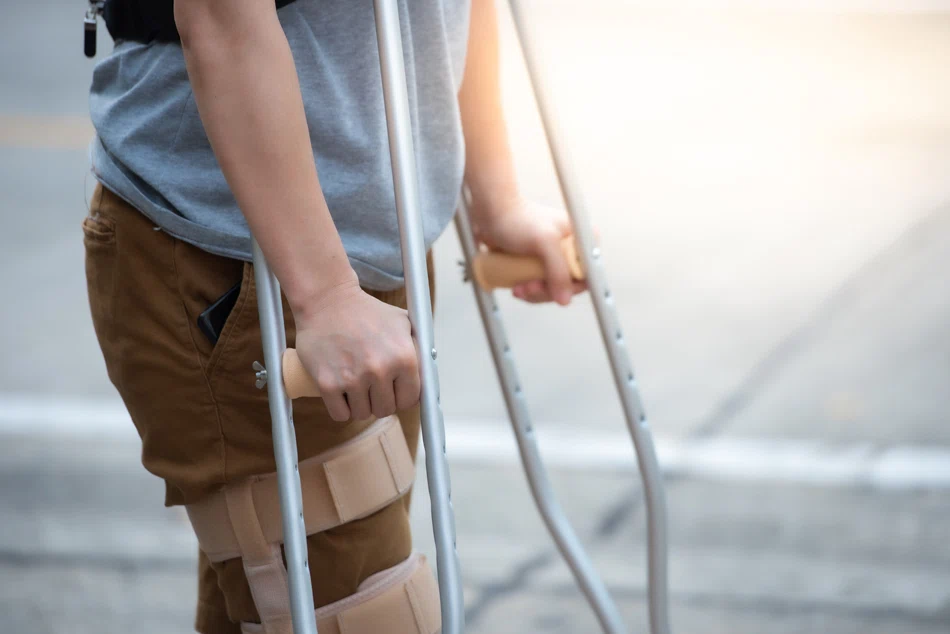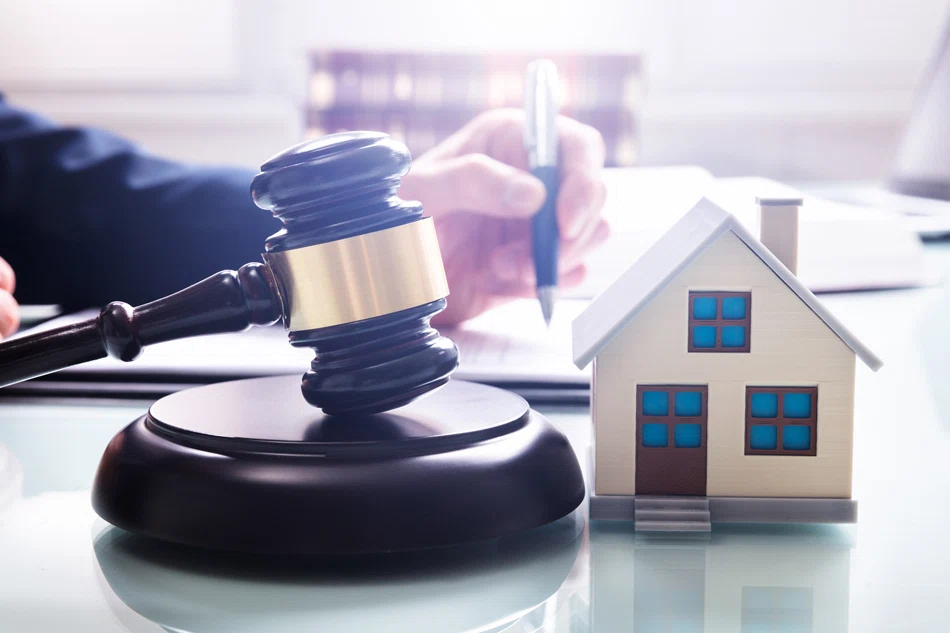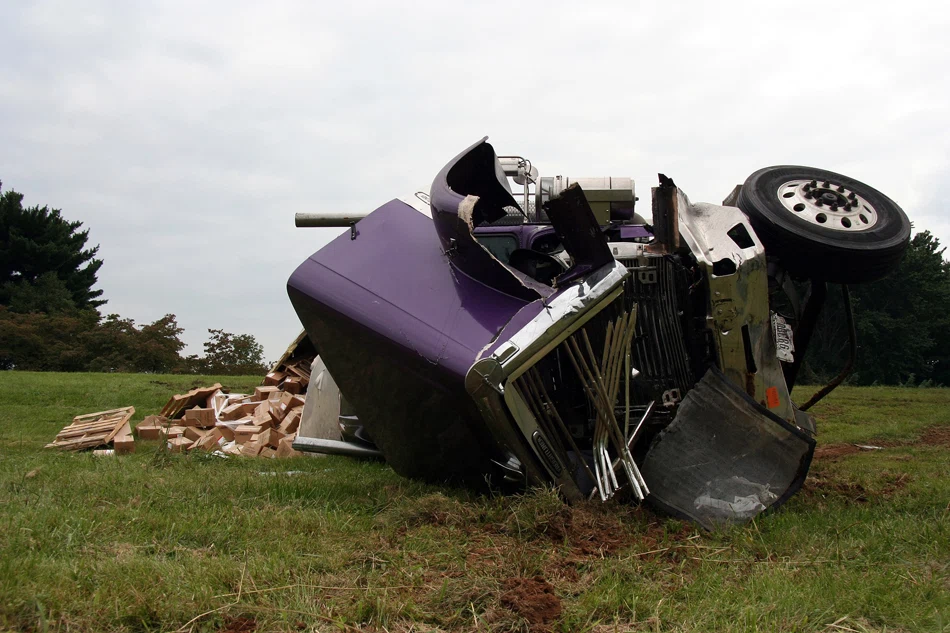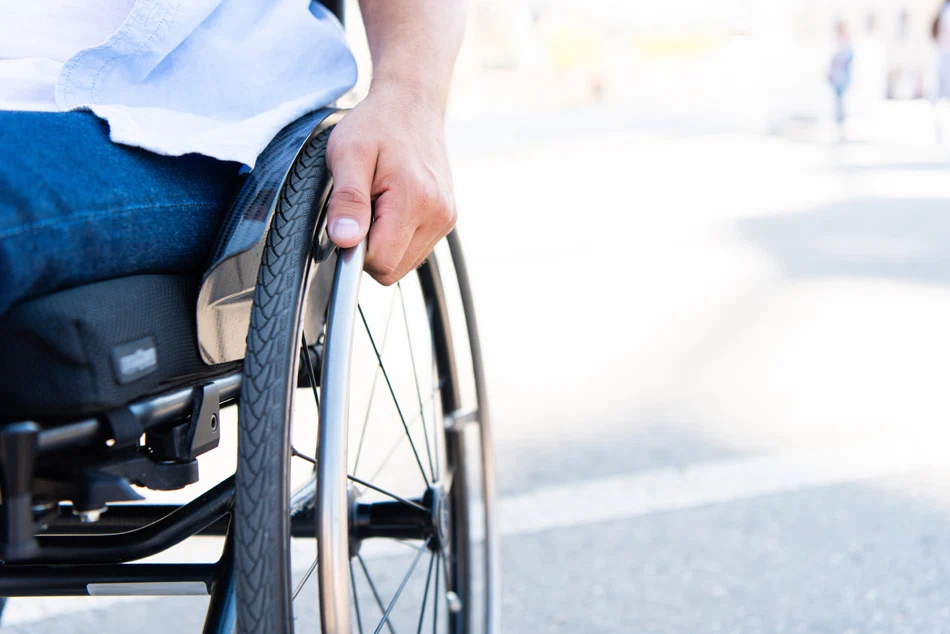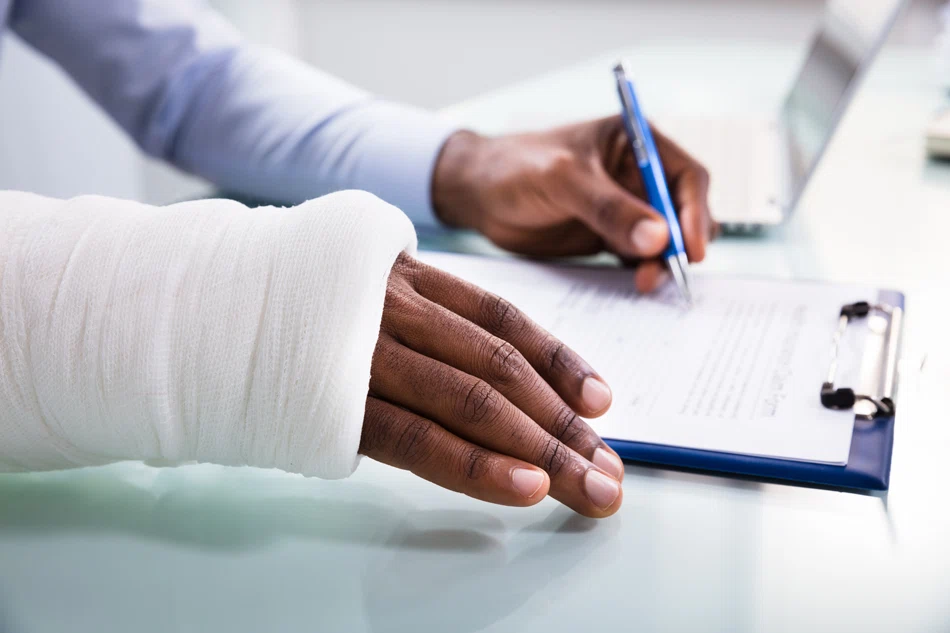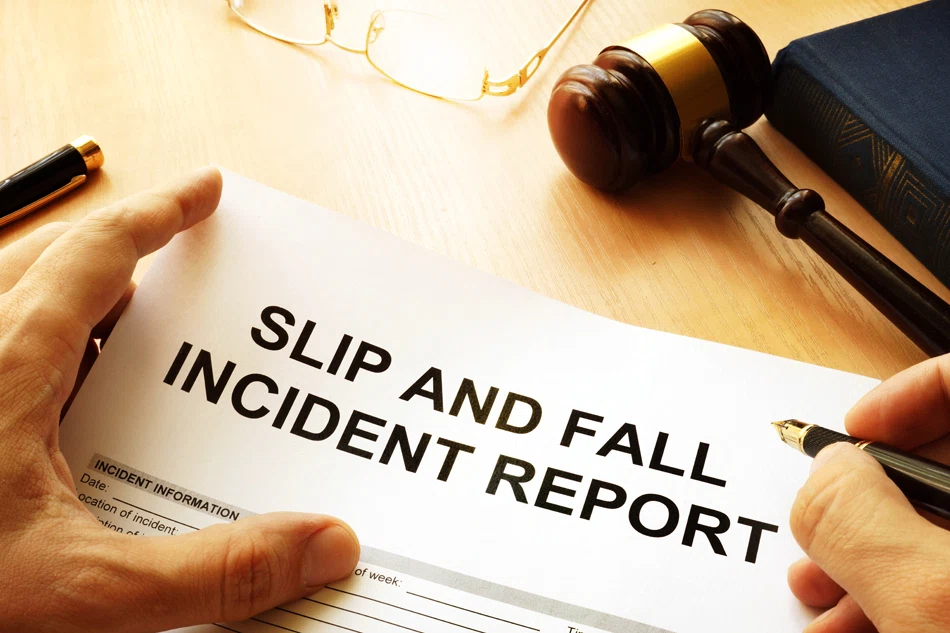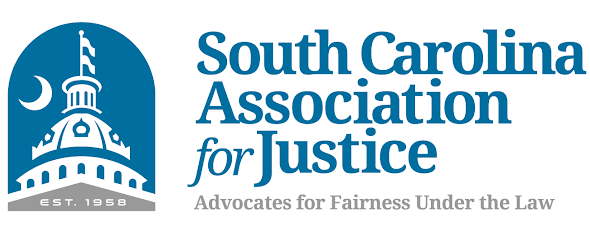FAQs
Possibly. When someone is killed in an accident caused by another person or organization’s negligence, South Carolina law allows surviving family members to file a wrongful death claim and seek compensation for a wide range of economic and non-economic damages, including:
- Accident-related medical expenses incurred by the deceased prior to death.
- Accident-related property damages and other losses.
- Funeral fees.
- Burial or cremation costs.
- Lost wages and benefits.
- Pain and suffering.
- Mental anguish.
- Loss of experience, judgment, and guidance.
- Loss of care and companionship.
However, not everyone who is related to the deceased is eligible to file a wrongful death claim in South Carolina. State law limits the right to bring a wrongful death claim to the executor of the deceased’s estate. This executor—also known as a personal representative or estate administrator—pursues the wrongful death claim on behalf of the deceased’s surviving family members. If the wrongful death lawsuit is successful, the decedent’s following family members would be eligible to recover damages:
- Surviving spouse and children.
- Parents (in the event that the deceased has no surviving spouse or children).
- Legal heirs (in the event that the deceased has no surviving spouse, children or parents).
Do You Need an Experienced Wrongful Death Attorney?
At Hite and Stone, we understand just how traumatic and stressful it can be to lose a loved one because of someone else’s reckless actions. While no amount of restitution could ever make up for the loss of your loved one, the compensation pursued in a wrongful death claim can help ensure that your family has the means to move forward financially after such a tragedy. Contact Hite and Stone, Attorneys at Law, today to schedule an appointment for a free initial case consultation. We’re eager to help you explore your legal options and fight for whatever compensation you deserve.
Possibly. When someone is killed in an accident caused by another person or organization’s negligence, South Carolina law allows surviving family members to file a wrongful death claim and seek compensation for a wide range of economic and non-economic damages, including:
Accident-related medical expenses incurred by the deceased prior to death.
Accident-related property damages and other losses.
• Funeral fees.
• Burial or cremation costs.
• Lost wages and benefits.
• Pain and suffering.
• Mental anguish.
• Loss of experience, judgment, and guidance.
• Loss of care and companionship.
However, not everyone who is related to the deceased is eligible to file a wrongful death claim in South Carolina. State law limits the right to bring a wrongful death claim to the executor of the deceased’s estate. This executor—also known as a personal representative or estate administrator—pursues the wrongful death claim on behalf of the deceased’s surviving family members. If the wrongful death lawsuit is successful, the decedent’s following family members would be eligible to recover damages:
• Surviving spouse and children.
• Parents (in the event that the deceased has no surviving spouse or children).
• Legal heirs (in the event that the deceased has no surviving spouse, children or parents).
Do You Need an Experienced Wrongful Death Attorney?
At Hite and Stone, we understand just how traumatic and stressful it can be to lose a loved one because of someone else’s reckless actions. While no amount of restitution could ever make up for the loss of your loved one, the compensation pursued in a wrongful death claim can help ensure that your family has the means to move forward financially after such a tragedy. Contact Hite and Stone, Attorneys at Law, today to schedule an appointment for a free initial case consultation. We’re eager to help you explore your legal options and fight for whatever compensation you deserve.
When someone is killed in a tragic accident caused by another person’s wrongful act or negligence, his death can have a significant emotional and financial impact on their surviving family members. A wrongful death lawsuit allows family members to pursue compensation for financial losses incurred as a result of their loved one’s untimely death, as well as for non-economic damages such as loss of care, companionship, and protection.
However, in South Carolina, the only person eligible to file a wrongful death lawsuit is the executor of the deceased’s estate. The executor—who may also be called a personal representative or estate administrator—must be at least 18 years old and of sound mind, and is often named in the deceased’s will or estate plan. The court may choose to appoint an executor in the event that there is no will or estate plan, the existing will or estate plan doesn’t name an executor, or the named executor is unable or unwilling to carry out his duties.
Statute of Limitation Laws in South Carolina
According to South Carolina’s statute of limitation laws, executors have three years from the date of the deceased’s death to file a wrongful death lawsuit. Also, although the executor is the one who brings the wrongful death action, the lawsuit will pursue compensation on behalf of deceased’s surviving family members. In South Carolina, family members eligible to recover compensation in a wrongful death case include:
• The deceased’s surviving spouse or children.
• The deceased’s surviving parents, if the deceased had no surviving spouse or children.
• The deceased’s heirs, if the deceased had no surviving spouse, children, or parents.
Knowledgeable Wrongful Death Attorneys
If your loved one died in an accident caused by someone else’s negligent actions or neglect, your family may be eligible for compensation for a wide range of damages, including funeral and burial or cremation expenses, lost wages and benefits, mental and emotional anguish, and more. Hite & Stone, Attorneys at Law, can help you explore your legal options. Contact us today to schedule an appointment for a free initial analysis of your case.
The term statute of limitations refers to how long you have to file a civil case. Each state has its own statute of limitations laws, so it’s important to make sure you’re reviewing information for South Carolina before deciding how to proceed with your case.
Personal Injury
Personal injury claims seek compensation for injuries from car accidents, slip and fall accidents, dog bites, or other incidents caused by another party’s negligence. The statute of limitations for this type of case in South Carolina is three years, but the statute of limitations can be tolled, or suspended, if the victim is a child or declared legally insane. Tolling may also be possible if the defendant lives out of state for one year or more after the injury.
Wrongful Death
A wrongful death suit is a type of personal injury claim where the family members of the deceased are seeking damages related to the death. South Carolina’s statute of limitations for this type of case is three years from the date of death, unless the discovery rule applies. This means that if the deceased person knew or should have known about the cause of his or her illness or injury before death, the statute of limitations begins running from the time of discovery.
Product Liability
A product liability claim holds the manufacturer of a dangerous product responsible for the harm that it inflicted. This type of case has a three-year statute of limitations in South Carolina.
Medical Malpractice
Medical malpractice refers to injuries caused by a doctor, surgeon, dentist, nurse, chiropractor, or other healthcare professional. In most cases, this type of lawsuit must be brought within three years from the date of the treatment that caused the injury or the date the harm should reasonably have been discovered. Under South Carolina law, the maximum time limit is six years or two years if a foreign object is left in the body.
Retaining Legal Representation
As you can see, different statutes apply to different types of cases. In some circumstances, it may be possible to file more than one type of legal action based on injuries from the same incident. You should speak with one of our attorneys promptly so that we can determine the statute of limitations that applies to your case. Contact Hite & Stone today to request a free, no-obligation consultation.
If you’ve suffered injuries that were the result of another party’s negligence, the responsible person may face both criminal and civil litigation. The major differences between a criminal trial and a civil trial relate to punishment and the burden of proof.
How Criminal Cases Work
After someone suffers an injury, law enforcement will investigate to determine if any criminal charges should be filed. For example, in a car accident, the at-fault driver may be charged with the criminal offenses of reckless driving or driving under the influence. The injured person will be asked to give a statement to be used as evidence in the state’s case.
To win the case, the prosecutor must prove guilt beyond a reasonable doubt. In a criminal case, a guilty verdict results in jail time and/or a monetary fine. Any fine is kept by the government.
How a Civil Case Works
A personal injury or wrongful death claim is a type of civil case filed by the injured person or the family of the deceased. In a civil trial, the burden of proof is significantly lower than in a criminal trial. Your attorney must only prove that it is more likely than not that the defendant is liable. In legal terms, this is called guilt based on a preponderance of the evidence.
In a civil case, an outcome that finds fault results in a monetary award for the victim or the victim’s estate. In a personal injury claim, the settlement includes compensation for medical expenses, lost wages, and pain and suffering. In a wrongful death case, the settlement includes compensation for medical expenses up to the time of death, funeral and burial expenses, loss of future wages, pain and suffering in the deceased person’s final moments, and the family’s loss of the deceased person’s care and companionship.
How Hite & Stone Can Help
The personal injury attorneys at Hite & Stone are committed to protecting the rights of South Carolina residents who’ve suffered harm caused by the negligence of others. Our personal injury attorneys are available for free consultations today.
Every state has a specific statute of limitations for personal injury claims. In South Carolina, you have three years to file a personal injury claim.
Don’t Rush to Settle
Insurance adjusters will likely try and rush you through processing your case. Their goal is to settle the case as quickly as possible for as little money as possible. They’re hoping that you’ll accept whatever is offered so you can pay immediate expenses and put the matter behind you.
Rushing to settle your claim can prove disastrous if you haven’t reached what’s known as maximum medical improvement (MMI). This is the point at which you’ve either fully recovered from your injuries or your condition has stabilized enough that it’s possible to accurately predict your future financial needs in terms of medical costs and lost wages. If you settle immediately and your injuries turn out to be more serious than you thought, you’re not allowed to go back and ask for additional money.
Tolling the Statute of Limitations
Although the three-year deadline is a firm limit in most cases, certain circumstances can toll the statute of limitations. This means the clock is temporarily paused to give you additional time to file a claim. The following are a few exceptions:
• If the injured person is a child, you have one year from the date he or she turns 18 to file the claim.
• If the injured person is legally insane, you have one year after the date he or she is no longer considered insane to file the claim. However, the deadline can’t be extended more than five years based on insanity.
•If the defendant is absent or resides outside the state for more than one year, this time isn’t considered part of the three-year statute of limitations.
How an Attorney Can Help
Your personal injury settlement should include compensation for medical expenses, lost wages, and pain and suffering. You’ve suffered enough, and you deserve to be compensated for your pain. Contact the personal injury attorneys at Hite & Stone to request a free, no-obligation consultation.
Unlike just about every other state, South Carolina requires an attorney to perform the closing of the sale of all commercial and residential properties. Even without this law, you need an attorney when trying to sort through the complexities of real estate transactions. At Hite & Stone, Attorneys at Law, we have decades of experience protecting our clients’ interests in these real estate matters:
• Purchase and sale of a residence
• Property foreclosures
• Landlord-tenant matters
• Land use and development projects
Reasons You Need a Real Estate Attorney in South Carolina
Your home is probably the most valuable asset you own. Purchasing or selling your home is an important step in your life. You should retain your own attorney because the lawyer conducting the closing does not represent you and will not be looking out for your interests. This is also important in other real estate matters, such as foreclosure, evictions, and complex real estate transactions.
Here are ways an experienced real estate lawyer can help you:
• No personal interest. Other parties, such as the title company and real estate agents, have a financial stake in the sale of residential and commercial property. When you retain an attorney, he has no personal stake in the outcome of the transaction other than protecting your rights. It is important to have someone looking out for your legal interests when you are buying or selling a home, need to evict a tenant, or are developing a commercial project.
• Experience. An experienced real estate attorney will understand the South Carolina real estate laws that apply to your transaction and will have reviewed many real estate documents. This will enable him to spot potential problems and help you avoid complications in your real estate matter.
• Document review. Your attorney can review your real estate documents to be certain that the legal requirements for the transfer of property are met and that your interests are protected. If there is a problem, he can have your paperwork modified. Real estate documents are complicated, and you need someone looking out for your legal rights and being sure that you are not paying more than you should. Your attorney can also explain any confusing legal terms in a way that you can understand.
• Communication with the mortgage company. Whether you are obtaining a mortgage or facing foreclosure, an attorney can communicate with the mortgage company for you. He can coordinate obtaining your mortgage documents to review, work out payment arrangements if you are behind on your mortgage payments, and much more.
Contact Us for Help With Your Real Estate Matter
Do you need legal assistance with a real estate matter? Our experienced real estate attorneys are here to help you whether you are buying your first home, negotiating a complex commercial real estate transaction, or facing foreclosure. To discuss your situation, call our office today to schedule your free, no-obligation consultation.
It is never an easy decision to place a loved one in a nursing home, and you want to feel confident that he will receive quality, compassionate care. No matter how well you research the facility, you need to be vigilant because there is always a risk that your family member will be the victim of nursing home abuse. Here, we explain what to do if you suspect that your worries are coming true.
Steps to Take to Protect Your Family Member From Nursing Home Abuse or Neglect
Physical, emotional, sexual, and financial abuse are just a few of the many forms that nursing home abuse can take. Your loved one is vulnerable when in a nursing home and is counting on you to protect him from this abusive behavior. Essential steps that you need to take if you suspect abuse include:
• Know the signs. Bedsores, bruises, torn clothing, sudden weight loss, anxiety, withdrawal from others, and insomnia are some of the warning signs that your family member is being abused. If you see any of these signs, you need to investigate further quickly.
• Call 911. If your family member is suffering a medical emergency or is in danger due to the abuse, call 911 to obtain immediate care for him. This can also alert law enforcement officials that they may need to take action against the nursing home or staff members.
• Investigate. When the situation is not an emergency, you should gather information that supports your suspicions. Take pictures of any bruises or any other visible signs of abuse, and talk to trustworthy staff, residents, and others who may have information about the abuse. You will also want to obtain a copy of your loved one’s medical records.
• Discuss your concerns. If you find evidence of abuse, you need to discuss your concerns with nursing home managers and find out that what steps they will do to correct the situation. Follow up your conversation regarding the abuse with a confirming letter, and keep a copy for your records. Also, save any written communications you receive from the nursing home.
• Remove your loved one. You will need to move your family member to a new nursing home if the abuse does not stop. Your primary concern should be your loved one’s safety.
• Contact an attorney. As soon as possible, you should contact a skilled personal injury attorney who has experience handling nursing home abuse claims. He can help you gather the evidence you need to hold the nursing home accountable and can file your loved one’s claim for compensation for any injuries that he suffered.
Do you suspect a loved one is the victim of nursing home abuse? Let us assist you in protecting him and pursuing his legal options. Call our office to schedule your free consultation today.
Sadly, truck accidents are a common occurrence in the United States—in fact, police received reports of approximately 415,000 crashes involving large trucks in 2015 alone, according to the Federal Motor Carrier Safety Administration. While people often assume that truck accident cases are just car accident cases on a larger scale, the two types of cases can differ in several key ways.
One way that truck accidents and car accidents differ is in the sizes and weights of the vehicles involved. The passenger vehicles involved in car crashes tend to weigh between 3,000 and 5,000 pounds, whereas truck crashes involve a smaller, lighter-weight passenger vehicle and a large truck or bus that can weigh up to 80,000 pounds. Such collisions can be catastrophic, resulting in greater property damages, more significant injuries and medical expenses, and a greater likelihood of death than most car accidents.
Additionally, in truck accident cases, liability may extend beyond the driver of the semi-truck, big rig, or 18-wheeler. If the truck accident victim and his attorney can show that the trucking company that employs the commercial driver was negligent in its hiring, training, supervisory, or truck maintenance practices, the company may also potentially be liable for crash-related injuries and damages.
Protect Your Rights After a Truck Accident
Truck accident injuries and damages are often significant and, as a result, most insurance adjusters for the trucking industry will try especially hard to reduce their company’s financial obligation to injured victims. However, working with a knowledgeable and experienced truck accident attorney can help victims ensure their rights are protected.
If you were seriously injured in a truck accident caused by a negligent commercial driver or trucking company, you may be entitled to compensation. Let Hite and Stone, Attorneys at Law, help you explore your legal options. Contact our office today to schedule an appointment for a free initial consultation to discuss the details of your truck accident case.
After an accident caused by another party’s negligence, it may be tempting to resolve the matter by accepting the insurance adjuster’s first offer. However, this could prove to be a serious mistake.
Insurance Companies Are Motivated by Profit
Remember, insurance companies never have your well-being and future in mind. Their goal is to provide you with the least amount of money required to resolve the matter. The earlier in the process you’re offered a settlement, the less likely it is that the offer will be adequate for your needs.
Reaching Maximum Medical Improvement
Another reason why it’s dangerous to settle a claim too early is that you’re not allowed to ask for more money if your injuries turn out to be more serious than you first thought. You should never settle a claim until you’ve reached maximum medical improvement (MMI). This is the point at which you’ve either fully recovered from your injuries or your permanently disabling condition has stabilized to the greatest extent possible.
Calculating the Full Value of Your Settlement
The insurance company’s offer may seem decent at first glance, but after you take into account lost wages, medical bills, pain and suffering, its offer is likely far below the money you deserve. In cases involving serious permanent disabilities, the only way to accurately know the value of your claim is to consult experts who can calculate the anticipated cost of your future medical needs and the effect your disability will have on your earning captivity.
Protect Yourself by Consulting an Attorney
Although it’s true that the majority of personal injury claims are settled out of court, this doesn’t mean it’s wise to forgo legal representation. Consult with an experienced personal injury attorney to ensure you are fairly compensated for your accident-related expenses. Since cases are accepted on a contingency fee basis, there is no upfront cost associated with protecting your legal rights. Call today to schedule a free, no-obligation consultation with Hite and Stone’s South Carolina personal injury attorneys.
Personal injury claims are civil actions allowing individuals to seek compensation for medical expenses, lost wages, and pain and suffering when they’ve suffered injuries caused by another party’s negligence. However, these cases have specific legal requirements you must meet.
Elements of a Personal Injury Claim
In order to have a personal injury claim, there must be a responsible negligent party. This means you must be able to prove another person is liable for you or your loved one’s pain and suffering.
There are four elements to winning your case:
• Duty. The defendant owed you a duty of care.
• Breach of Duty. The defendant’s actions failed to uphold the required duty of care.
• Causation. Your damages are caused solely by the defendant’s actions and not attributed to some other cause.
• Damages. Breach of duty caused you specific harm, such as medical costs and lost wages.
These elements are the same in every type of personal injury claim, including car accidents, slip and fall cases, and dog bite injuries. However, it’s important to keep in mind that there is a different standard of proof for a civil personal injury case compared to a criminal charge.
To win your personal injury claim, you don’t need to prove fault beyond a reasonable doubt. You must only prove beyond a preponderance of the evidence that the defendant is responsible. This means that it’s more likely than not that the defendant’s actions caused your injuries.
Evidence in a Personal Injury Claim
Types of evidence you might use to support your personal injury claim include:
• Photographs from the accident scene
• Surveillance video
• Testimony from witnesses
• Police reports
• Expert testimony
You’ll also need to document your damages by providing proof of financial harm you’ve suffered. This includes copies of medical bills and pay stubs showing lost wages.
Protecting Your Right to Compensation
Hite and Stone’s legal team is committed to protecting the rights of South Carolina residents who’ve been injured due to the negligence of others. If you are unsure whether your injuries qualify for compensation, our South Carolina personal injury attorneys are available for free consultations today.
Under South Carolina’s workers’ compensation laws, you may be entitled to compensation for injuries you suffered at work due to your employer’s, a co-worker’s, or even your own negligence. Workers’ compensation is a no-fault system in our state, which means that you could receive benefits regardless of the cause of your accident. Here, we explain the types of workers’ compensation benefits that you may receive.
Types of Workers’ Compensation Benefits in South Carolina
Although workers’ compensation is not based on fault, this does not mean that your employer’s insurance company will voluntarily pay you the benefits that you are entitled to. It is important to understand the types of benefits that you can receive to protect your rights and receive what you are owed.
Types of benefits you may deserve include:
• Medical care. Your employer or its insurance company must pay for all necessary medical care for your injuries, such as surgery, doctor visits, physical therapy, and prescriptions. However, your employer has the right to pick the doctor that treats you, and you would not be entitled to medical benefits if you did not use this doctor.
• Temporary disability benefits. If you must take off work for more than seven days, you could be entitled to temporary disability benefits. This is a weekly payment that reimburses you for two-thirds of your wages up to a maximum amount set each January. The maximum weekly benefit in 2018 is $838.21, and you can find this information on the South Carolina Workers’ Compensation Commission website.
• Permanent total disability benefits. If you suffer a permanent total disability, you may be entitled to additional total disability benefits of two-thirds of your wages. Generally, you would be entitled to this for a maximum of 500 weeks. In addition, you only would be entitled to this if you suffered a narrowly defined list of serious injuries, like loss of both hands, arms, feet, legs, eyes, or a combination of two of these losses.
• Partial total disability benefits. If you suffered a partial permanent impairment, you may also receive additional weekly benefits up to a set maximum number of weeks. The benefits can be a scheduled award, which is a list of certain disability with a set benefit amount, unscheduled award, which is a disability not on the scheduled list, or for disfigurement.
• Travel expenses. You may be entitled to reimbursement for travel expenses to receive needed medical care.
• Vocational rehabilitation. If you are unable to return to your former job due to your injuries, you may be able to receive vocational rehabilitation services to help you identify a new career and help you find a new job.
• Death benefits. If a loved one died in a workplace accident, you may be entitled to death benefits if you were his spouse, children, or another dependent.
• Funeral expenses. A family can receive up to $2,500 to pay for funeral and burial expenses for a worker killed in an accident.
At Hite & Stone, our experienced workers’ compensation attorneys have over 30 years of experience helping our injured clients fight for the workers’ compensation benefits that they deserved. We are a family-oriented law firm that believes in fighting hard for our clients’ rights no matter how serious their injury was. To learn how we can help you, call our office to schedule your free consultation today.
When you suffer an injury in a workplace accident or develop an illness due to your job, you may be entitled to benefits under South Carolina’s workers’ compensation laws. The workers’ compensation program is a no-fault system which would pay you benefits regardless of who was at fault for causing your accident. However, you must follow the state’s laws on how and when to file a claim. It can feel overwhelming to figure out what you must do when you are in pain and coping with your injuries. Here, we explain the basics of how to file a workers’ compensation claim.
Reporting Your Injury Is the First Step in Filing a Workers’ Comp Claim
Your first concern should be obtaining the immediate medical care that you need for your injuries. Your next step should be to notify your employer of your injury or occupational illness. Under South Carolina law, you are required to report this to your employer within 90 days of your injury or development of an illness. However, it would be best to notify your employer as soon as possible after your accident. While it is acceptable to tell your employer orally, you should also notify your employer in writing and keep a copy of the notice for your records.
If you fail to inform your employer of your injury within this 90-day time period, you could waive your right to benefits. However, there may be exceptions to this deadline, so it is best to consult with an experienced workers’ compensation lawyer on whether you can still report your injury.
How Your Workers’ Compensation Claim Is Filed
Your employer is required to file your workers’ compensation claim within 10 days of the date that you inform them of your injury or illness. You may need to file your own claim in these situations:
• Your employer fails to file your claim within 10 days.
• Your employer denies responsibility for paying your workers’ comp benefits.
• You do not believe that you are receiving the benefits that you deserve.
You must file your claim within two years of your workplace accident or two years of the diagnosis of a work-related illness. However, like with reporting your accident, you strengthen your claim by filing your claim as soon as possible if this is necessary. You would do so by filing a Form 50 with the South Carolina Workers’ Compensation Commission.
Do you need to file a workers’ comp claim in South Carolina? Let our experienced workers’ compensation attorneys take over the burden of filing your claim and negotiating your settlement so that you receive what you are entitled to. Fill out our convenient online form to schedule your free consultation today.
Unfortunately, many people are injured or killed in slip and fall accidents every year, and the dangers of one of these preventable accidents are everywhere. Failing to clean up spills, repair worn carpet or flooring, or repair parking lot cracks and potholes are just some of the ways that business and property owners create unsafe conditions that lead to slip and fall accidents. If you suffered injuries in a fall due to negligence, you may be able to hold the business or property owner responsible for compensating you for your injuries—with the help of an experienced personal injury attorney.
Common Injuries That You Could Suffer in a Slip and Fall Accident
Many people are under the misconception that slip and fall accidents are not that serious—until one happens to them. However, the reality is that slip and fall victims suffer debilitating injuries that can require months or longer of medical treatments before they recover—if that is even possible. Some of the most common injuries victims suffer include:
• Head injuries. A victim could suffer a concussion, skull fracture, hemorrhage, or traumatic brain injury (TBI) if his head hits a hard floor or other surface in a fall. A TBI is probably the most serious brain injury caused by these accidents. It can cause devastating permanent changes to a person’s hearing, vision, mobility, reasoning, emotions, memory, and much more. People who suffer with a TBI may not be able to return to work, and even day-to-day activities may be challenging without assistance.
• Hip fractures. A victim who suffers a hip fracture in a fall may need surgery and a lengthy rehabilitation period to recover from his injury. When the victim is elderly, the risk is greater that he will not make a full recovery and that he will suffer complications—possibly resulting in his death.
• Back and spinal cord injuries. If the spinal cord is injured, a victim could suffer partial or complete paralysis and need life-long medical care and assistance with his basic daily needs. Broken vertebrae, slipped or herniated disks, or muscle or tendon strains and tears can cause a victim to suffer with chronic pain and limitations in movement while he undergoes surgery, physical therapy, and other treatments for his injuries.
• Shoulder injuries. A common shoulder injury caused in a slip and fall accident is a shoulder dislocation, which is also known as a brachial plexus injury. The brachial plexus are the nerves that connect the spinal cord to a person’s shoulder, arm, and hand. Surgery and physical therapy are often required to treat this very painful injury.
• Sprains, tears, and fractures. A person can suffer muscle and tendon tears and sprains in his knee, ankle, wrist, or other body parts that can cause pain and limitations of movement during the months or longer of medical care. Fractures are also common, and serious ones may require multiple surgeries to repair the damage.
Let Us Help You Fight for the Compensation That You Deserve
If you were injured in a slip and fall accident, you may be entitled to compensation for your medical bills, lost wages, and pain and suffering from the negligent business or property owner. Let our experienced slip and fall attorneys take over the burden of filing your claim and negotiating the settlement that you are entitled to so that you can focus on recovering from your injuries. We are a family-owned firm that takes pride in putting our client’s interests first. To learn how we can help you, call our office today.
Car accidents are extremely common in the United States, with an estimated five to six million police-reported crashes occurring each year, according to the National Highway Traffic Safety Administration (NHTSA). The leading causes of car accidents fall into one of two broad categories: human error or choice, and anything—and everything—else.
Human error is the most common cause of vehicle collisions, playing a role in more than 94 percent of crashes. Examples of accident causes attributed to driver error include:
• Distracted driving. In 2015 alone, approximately 391,000 people were injured—and 3,477 were killed—in accidents caused by distracted driving behaviors such as talking or texting on a cell phone, eating, drinking, or using an in-vehicle entertainment or navigation system.
• Drunk driving. More than 10,000 people died in drunk driving accidents in 2015, accounting for nearly one-third of all traffic-related fatalities.
• Reckless driving. Driver behaviors such as speeding, tailgating, weaving, making improper lane changes, and ignoring traffic signs and signals result in thousands of accidents and injuries each year.
• Drowsy driving. In 2013, fatigued drivers caused approximately 72,000 accidents, 44,000 injuries and 800 deaths, according to NHTSA estimates.
Some of the most common causes of the remaining six percent of accidents include:
• Vehicle design defects
• Poorly designed roads
• Inadequate road maintenance
• Inclement weather conditions
Consult an Experienced Personal Injury Attorney
If you suffered serious injuries or other losses in a car accident caused by someone else’s negligence, you may be entitled to compensation for medical expenses, property damages, lost wages, pain and suffering, and more. Hite & Stone, Attorneys at Law, have been protecting the rights of injured victims since 1982. Our knowledgeable and experienced personal injury attorneys can help you explore your legal rights. Contact Hite & Stone today to schedule an appointment for a free initial review of your car accident case.


